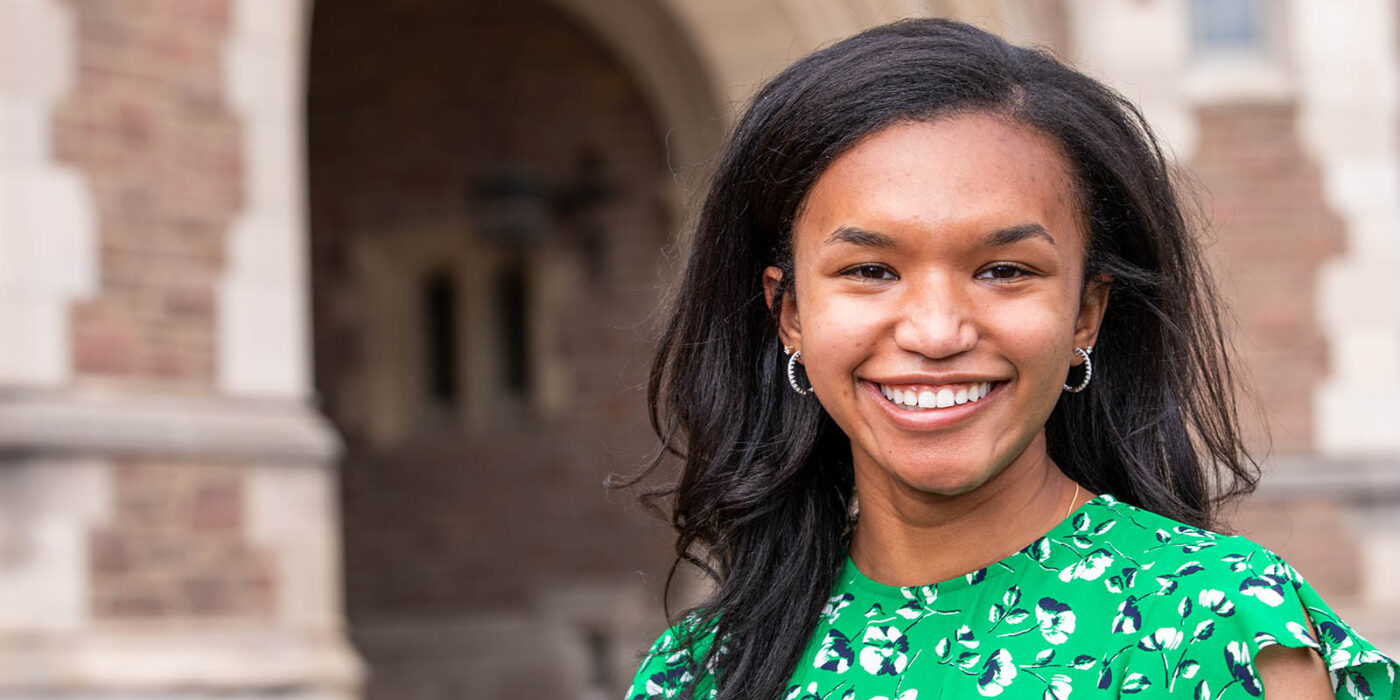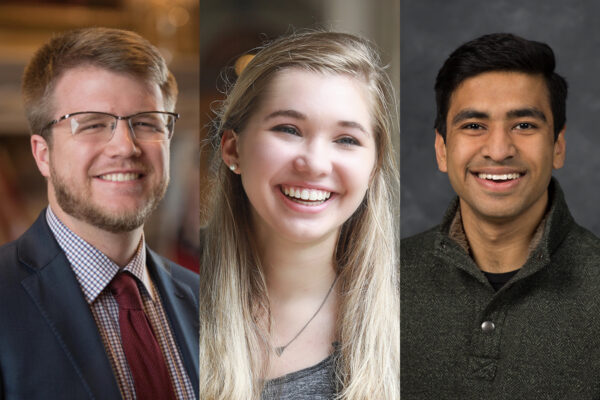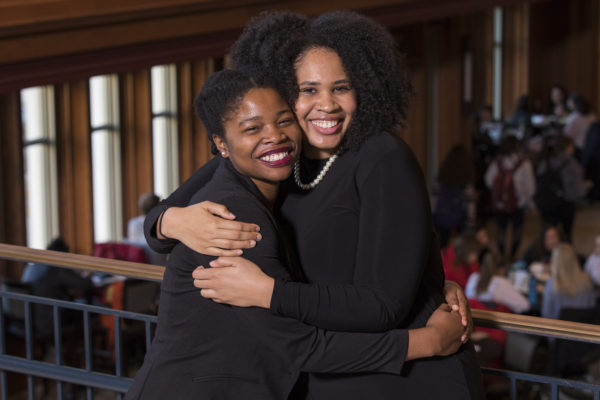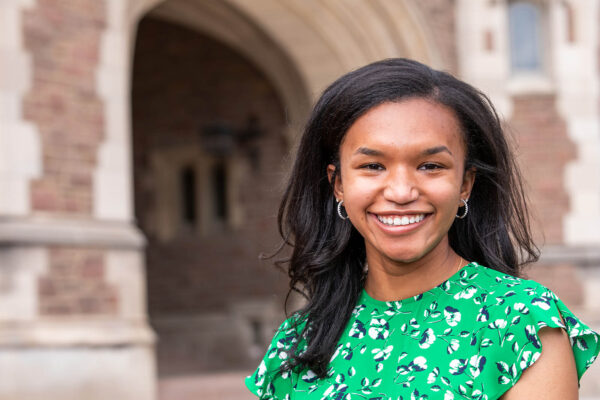Washington University in St. Louis senior Kennedy Young was a finalist for the prestigious Rhodes Scholarship.
Young, 21, is from Little Rock, Ark. and is majoring in sociology and in African and African American studies, both in Arts & Sciences. She is an Ervin Scholar.
Inspired by the documentary “13th” and troubled by injustices experienced by members of her community and her family, Young has devoted her years at Washington University to studying the history of mass incarceration and working directly with those in the prison system today.
Young is a tutor at the Prison Education Project (PEP) at Missouri Eastern Correctional Center, where she helps incarcerated students compose essays and conduct research, and is co-founder of the St. Louis Reentry Collective, a mutual aid organization that gives formerly incarcerated people money for clothes, housing and other basic needs. Her efforts earned her a 2021 Virgil Ethic of Service of Award.
“To create real change for people, we must be in community with them,” Young said. “In the academy, we too often think that we have all of the answers and try to force our ideas on the people we want to help. That only reproduces the harms we are trying to ‘fix.’ To me, listening to those most impacted by the system is so important.”
Chancellor Andrew D. Martin praised Young for her commitment to academic excellence and to the St. Louis community.
“I am proud of Kennedy for her hard work, humanity and leadership,” Martin said. “Kennedy has helped many members of the Prison Education Project grow as students and discover their potential, preparing them for the transition back home.”
Young’s professors call her a talented and tireless researcher. A Mellon Mays Fellow, Young currently is collecting oral histories from families in the Arkansas Delta about the Oneida Massacre of Native Americans and Ethiopians, which occurred at some point between 1865 and 1872. Because no written records remain, the tragedy has been largely forgotten. That is why Young’s original research is so critical, said Hedwig Lee, Young’s adviser and professor of sociology in Arts & Sciences.
“Part of what Kennedy will do is to examine how knowledge is passed down and cultivated in historically oppressed communities, especially when we lack written documents,” Lee explained in her recommendation letter. “These data become especially important when attempts are made to leave racial violence out of the historical record. A driving theme in all of Kennedy’s research is to make racial violence in its many forms visible in current and historical contexts.”
During her time at Washington University, Young also completed internships for ArchCity Defenders, a local holistic legal advocacy organization; the Federal Public Defender’s Office, Eastern District of Arkansas; and the Brennan Center for Justice, a nonprofit law and public policy institute.
Jami Ake, assistant dean in Arts & Sciences and a co-founder of the St. Louis Reentry Project, said Young’s experiences as a scholar, activist and public servant uniquely prepare her to tackle the stubborn challenge of criminal justice reform.
“What is particularly impressive about Kennedy is her remarkable ability to translate her academic learning from the classroom to the community and back again in the service of changing individual lives and the structures that limit those lives,” Ake wrote in her recommendation.
Ultimately, Young plans to earn a law degree and would like to teach law, conduct research and operate a reentry clinic. She also is committed to expanding educational opportunities for incarcerated and formerly incarcerated people.
“One of my favorite quotes is ‘Talent is universal, but opportunity is not,’” Young said. “That is why I am passionate about making education and learning accessible for those who have been historically left out and excluded.”
Set to graduate in May, Young said she will miss St. Louis and Washington University, especially the mentors who championed her Rhodes application — Ake and Lee, as well as Jonathan Fenderson, David Cunningham, Wilmetta J. Toliver-Diallo, and Adia Harvey Wingfield, all faculty members in Arts & Sciences, and Jonathan Solomon, director of the Ervin Scholar Program.
“I would not be here without their support and continued investment in me as a person and scholar,” Young said. “Like they say, it really takes a village.”
On Nov. 20, the Rhodes Trust selected 32 American scholars to join the program. Washington University has had 29 Rhodes Scholars since the program began in 1902.



